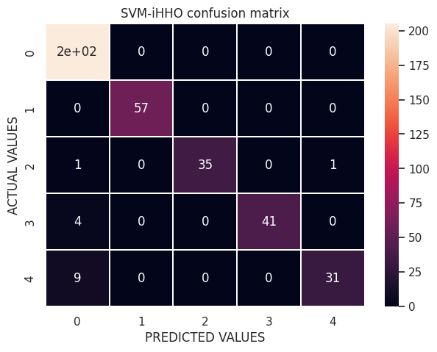Predicting Arrhythmia Based on Machine Learning Using Improved Harris Hawk Algorithm
Main Article Content
Abstract
Arrhythmia disease is widely recognized as a prominent and lethal ailment on a global scale, resulting in a significant number of fatalities annually. The timely identification of this ailment is crucial for preserving individuals' lives. Machine Learning (ML), a branch of artificial intelligence (AI), has emerged as a highly efficient and cost-effective method for illness detection. The objective of this work is to develop a machine learning (ML) model capable of accurately predicting heart illness by using the Arrhythmia disease dataset, with the purpose of achieving optimal performance. The performance of the model is greatly influenced by the selection of the machine learning method and the features in the dataset for training purposes. In order to mitigate the issue of overfitting caused by the high dimensionality of the features in the Arrhythmia dataset, a reduction of the dataset to a lower dimensional subspace was performed via the improved Harris hawk optimization algorithm (iHHO). The Harris hawk algorithm exhibits a rapid convergence rate and possesses a notable degree of adaptability in its ability to identify optimal characteristics. The performance of the models created with the feature-selected dataset using various machine learning techniques was evaluated and compared. In this work, total seven classifiers like SVM, GB, GNB, RF, LR, DT, and KNN are used to classify the data produced by the iHHO algorithm. The results clearly show the improvement of 3%, 4%, 4%, 9%, 8%, 3%, and 9% with the classifiers KNN, RF, GB, SVM, LR, DT, and GNB respectively.

